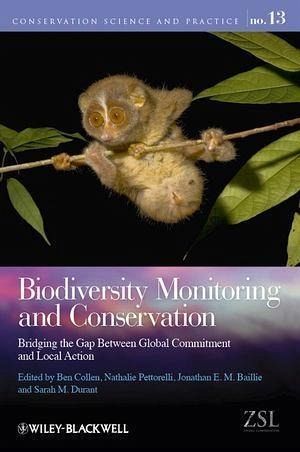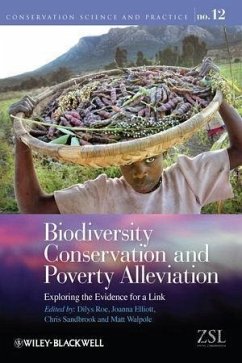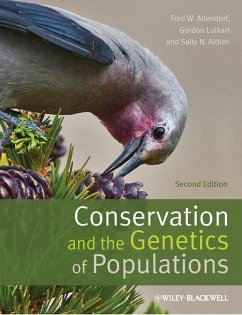
Biodiversity Monitoring and Conservation (eBook, ePUB)
Bridging the Gap Between Global Commitment and Local Action
Redaktion: Collen, Ben; Durant, Sarah M.; Baillie, Jonathan E. M.; Pettorelli, Nathalie
Versandkostenfrei!
Sofort per Download lieferbar
60,99 €
inkl. MwSt.
Weitere Ausgaben:

PAYBACK Punkte
0 °P sammeln!
As the impacts of anthropogenic activities increase in both magnitude and extent, biodiversity is coming under increasing pressure. Scientists and policy makers are frequently hampered by a lack of information on biological systems, particularly information relating to long-term trends. Such information is crucial to developing an understanding as to how biodiversity may respond to global environmental change. Knowledge gaps make it very difficult to develop effective policies and legislation to reduce and reverse biodiversity loss. This book explores the gap between global commitments to biod...
As the impacts of anthropogenic activities increase in both magnitude and extent, biodiversity is coming under increasing pressure. Scientists and policy makers are frequently hampered by a lack of information on biological systems, particularly information relating to long-term trends. Such information is crucial to developing an understanding as to how biodiversity may respond to global environmental change. Knowledge gaps make it very difficult to develop effective policies and legislation to reduce and reverse biodiversity loss. This book explores the gap between global commitments to biodiversity conservation, and local action to track biodiversity change and implement conservation action. High profile international political commitments to improve biodiversity conservation, such as the targets set by the Convention on Biological Diversity, require innovative and rapid responses from both science and policy. This multi-disciplinary perspective highlights barriers to conservation and offers novel solutions to evaluating trends in biodiversity at multiple scales.
Dieser Download kann aus rechtlichen Gründen nur mit Rechnungsadresse in D ausgeliefert werden.













